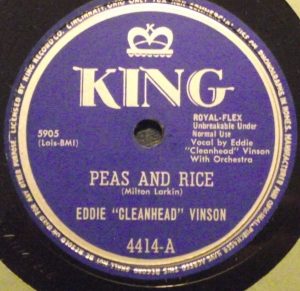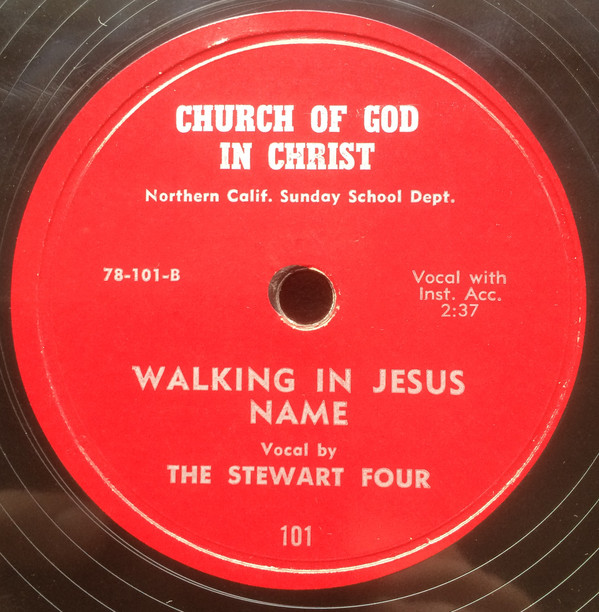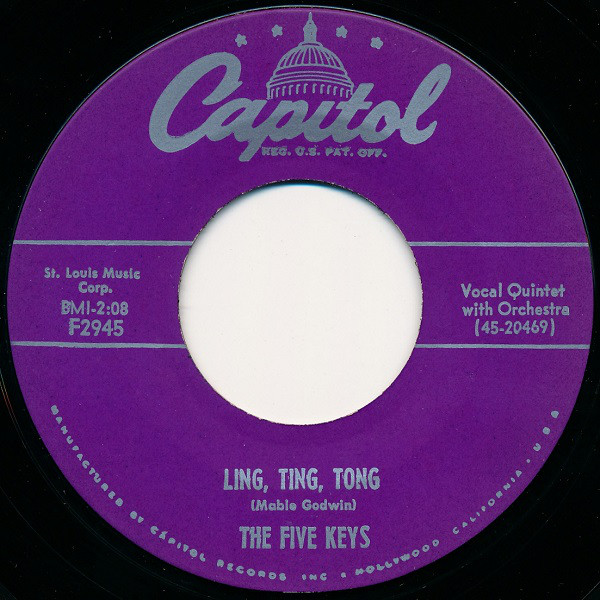
“Peas and Rice” (1950) – Eddie “Cleanhead” Vinson * Written by Milton Larkin * 78: “Peas and Rice” / “If You Don’t Think I’m Sinking (Look What a Hole I’m In)” * Label: King
“Kidney Stew Blues,” from 1947, is the best-known track by the Houston, Texas-born alto sax-blowing blues shouter Eddie “Cleanhead” Vinson. It’s “Peas and Rice,” though, the follow-up menu offerering written by the Navasota-born bandleader Milt Larkin, that really showcases the signature rasp-gasp Vinson would use for phrase endings. (His nickname comes from an early misadventure with some destructive hair-straightening product, according to a 1975 interview in Blues Limited magazine. After shaving his head he enjoyed the attention brought on by the new look.) The first appearance of “Peas and Rice” on LP was on a 1959 King label compilation called Battle of the Blues Vol. 4, which includes tracks by Vinson, Roy Brown, and Wynonie Harris. Information about the two female cover models with boxing gloves remains elusive.




